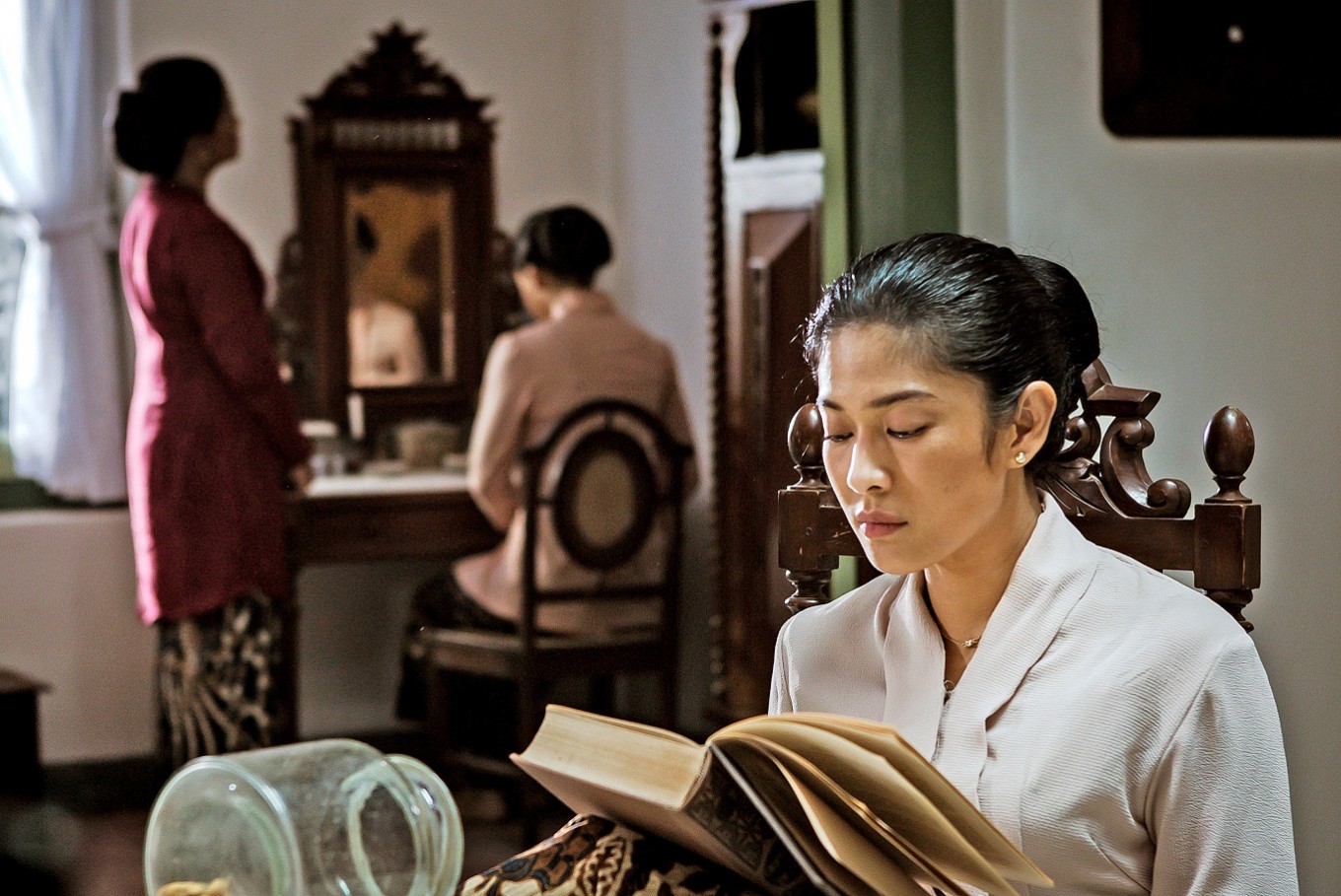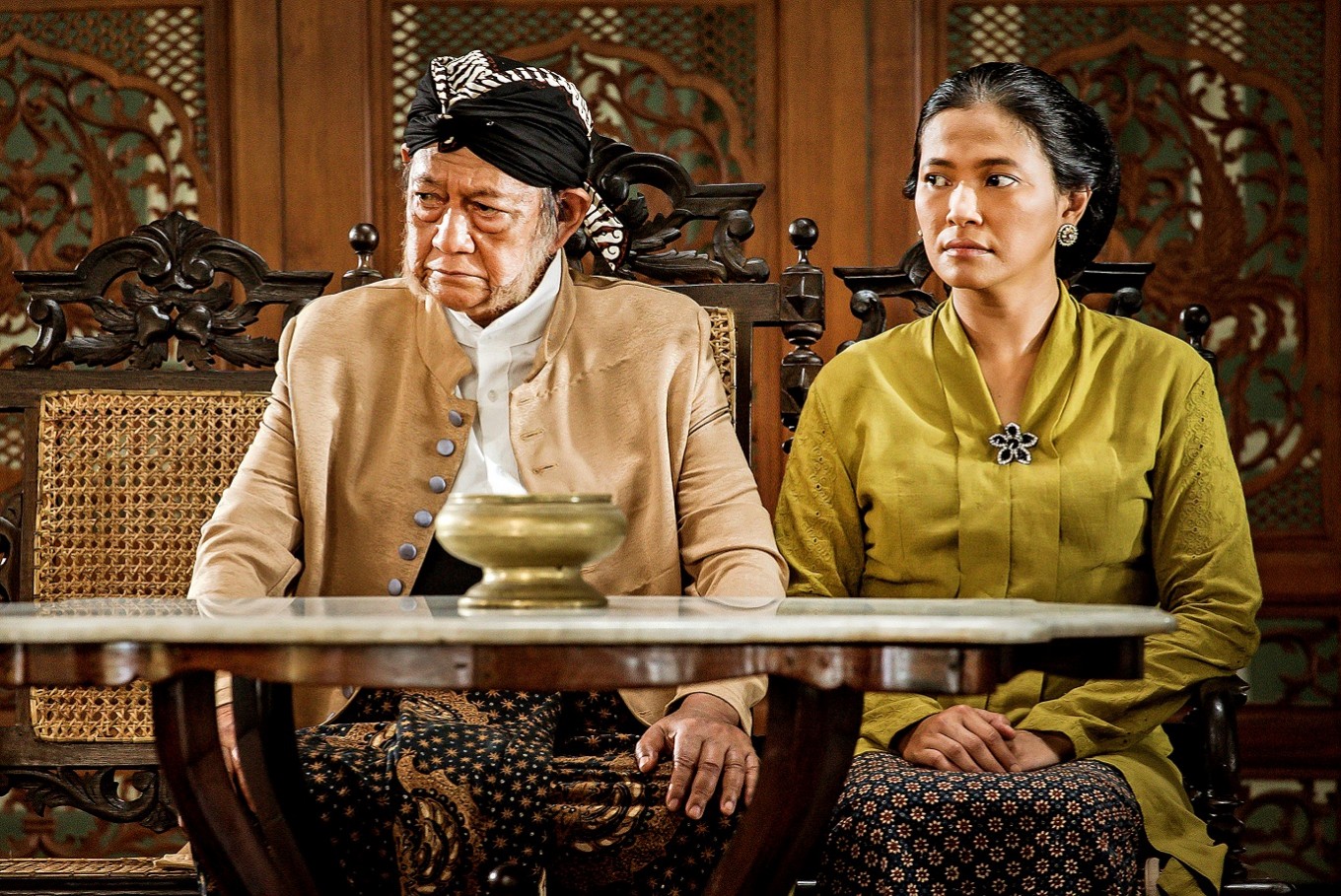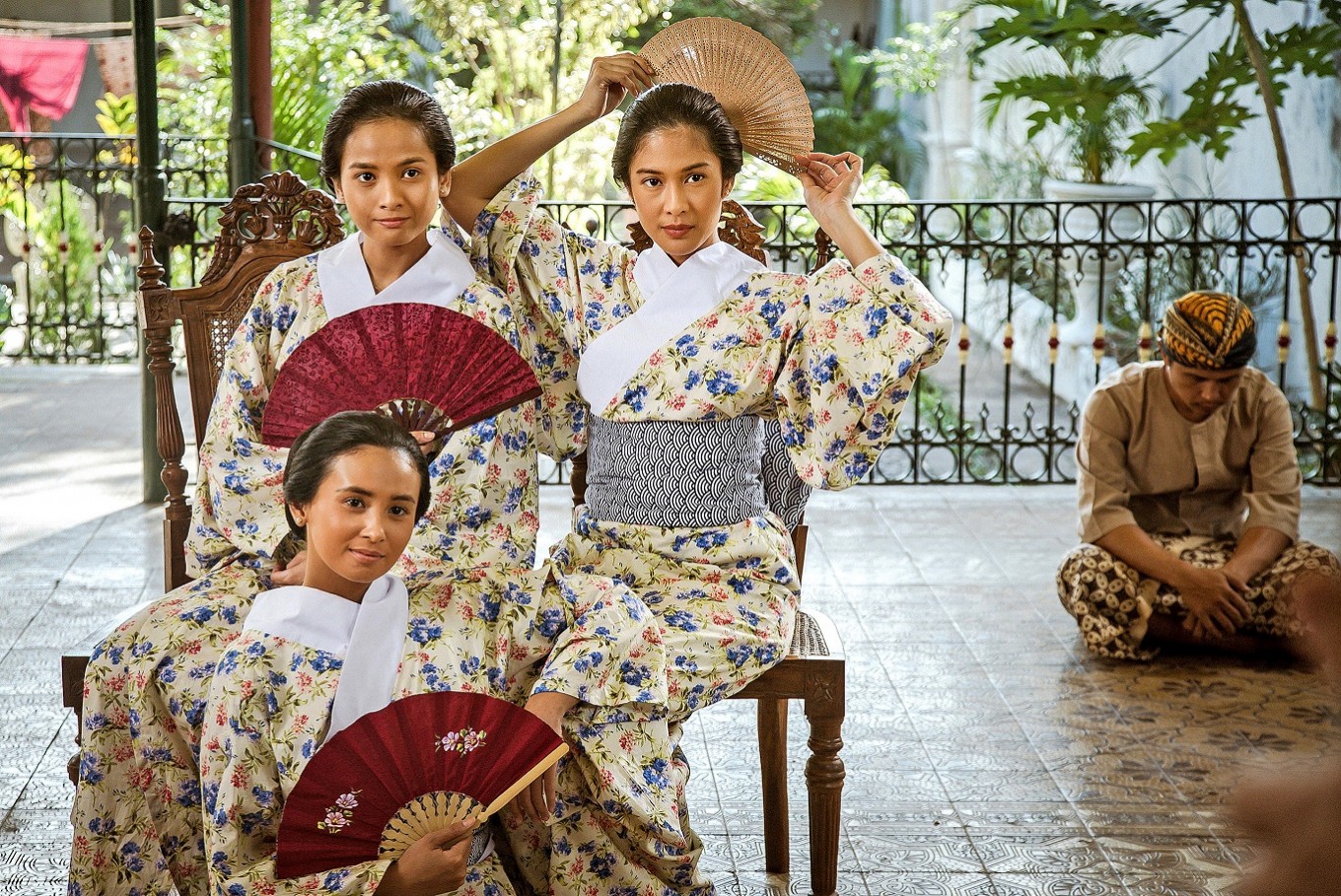Popular Reads
Top Results
Can't find what you're looking for?
View all search resultsPopular Reads
Top Results
Can't find what you're looking for?
View all search results'Kartini': A politically correct version of her story
Kartini was not the first slice-of-life film about the rebellious princess of coastal Jepara, Central Java, but by far it was the only one that explored her wide spectrum of interests and her influences.
Change text size
Gift Premium Articles
to Anyone
F
ilm director Hanung Bramantyo might not have foreseen that his new film Kartini would be in resonance with the snowballing ideas on women’s resistance in the country, which gained momentum on National Women’s Day in December amid heightening pluralism and religious intolerance.
When he started two years ago, cowriting the script based on extensive documentary and field research, his purpose was merely to present the true story of a young lady from a noble Javanese family whose progressive ideas on equality and the right of women to be educated at the turn of the 20th century led her to be named a national heroine for female emancipation and to her birth date on April 21 to be commemorated as Kartini’s Day.
However, the film revealed much more than what was written in school history textbooks.
Read also: Kartini, beyond her famous letters
Kartini was not the first slice-of-life film about the rebellious princess of coastal Jepara, Central Java, but by far it was the only one that explored her wide spectrum of interests and her influences.
Hanung was eager to put in the movie the issues of the family in which Trinil — the childhood name Kartini was affectionately called – was brought up, her relations with her siblings, her biological mother and her father’s wife.
 Window to the world: Kartini, played by Dian Sastrowardoyo, is allowed to read the books in Dutch sent by her brother during her marriage confinement.(Legacy Pictures/File)
Window to the world: Kartini, played by Dian Sastrowardoyo, is allowed to read the books in Dutch sent by her brother during her marriage confinement.(Legacy Pictures/File)
As the film focuses on Kartini’s life as she reached the proper age for marriage — which traditionally was right after she had her first menstrual period — it follows the titular character’s struggle in realizing her objectives to study abroad and to see the world beyond the walls of her palace, her place of confinement.
She negotiates and compromises with her father and other older male members of the family to be able to play on the beach, to continue her relationships with her Dutch friends and later with her would-be husband in a pre-arranged marriage to be able to open schools for women and the underprivileged.
Read also: Women can have it all: Sri Mulyani
Hanung also inserted Kartini’s ideas to expose to the world the wood carving art of Jepara, the region’s signature handicraft for which it is known today, as well as her understanding of Islam and her suggestion to translate the Quran into the vernacular Javanese language so that people could avoid committing sins in the name of religion out of false interpretations.
With all that crammed into a 119-minute duration it’s understandable that conflict is tense from the beginning and that some narration that influenced the character’s development is excluded.
From the title it’s obvious that Hanung adapted Pramoedya Ananta Toer’s novel Panggil Aku Kartini Saja (Just Call Me Kartini) that tells how Kartini was determined to abandon her noble title Raden Ajeng while her biological mother Ngasirah’s status was reduced to the level of housekeeper after her father Raden Mas Adipati Ario Sosroningrat, the regent of Jepara, was married to a noble lady, Raden Ayu Moerjam.
 Noblesse oblige: Kartini's father, Jepara Regent RM Adipati Ario Sosroningrat (Deddy Sutomo), and step mother RA Moerjam (Djenar Maesa Ayu) send the girls to confinement to become a perfect wife of a noble family.(Legacy Pictures/File)
Noblesse oblige: Kartini's father, Jepara Regent RM Adipati Ario Sosroningrat (Deddy Sutomo), and step mother RA Moerjam (Djenar Maesa Ayu) send the girls to confinement to become a perfect wife of a noble family.(Legacy Pictures/File)
In the film, however, it’s not told that Ngasirah (Christine Hakim) was the daughter of an Islamic preacher.
A glaring fact that Kartini was a teenage prodigy who spoke and wrote fluent Dutch and had high curiosity with a knack of climbing walls with her two sisters Kardinah and Roekmini could not be seen on screen.
Read also: Why women's participation in politics too crucial to be overlooked
The cast of serene actresses Dian Sastrowardoyo as Kartini, Ayushita as Kardinah and Acha Septriasa as Roekmini — who were in their late 20s to early 30s — was a good choice for commercial purposes, but the thrill of having a girl whose pensées had been published in the Netherlands (under her father’s name or the pseudonym Cloverleaf) during the Dutch occupation, which were later recognized as the embryo of the country’s independence movement, was not there.
Her close relations with his brother Sosrokartono (Reza Rahadian), who at that time was studying in the Netherlands, in the film was mostly reflected in the package of books he sent to the three sisters.
 Blossoming: The three sisters: (clockwise) Roekmini (Acha Septriasa), Kartini (Dian Sastrowardoyo) and Kardinah (Ayushita) have the privilege of luxury during their confinement.(Legacy Pictures/File)
Blossoming: The three sisters: (clockwise) Roekmini (Acha Septriasa), Kartini (Dian Sastrowardoyo) and Kardinah (Ayushita) have the privilege of luxury during their confinement.(Legacy Pictures/File)
The director has a few biopics under his belt, namely 2010’s Sang Pencerah (The Enlightened One) about Ahmad Dahlan, the founder of the second largest Muslim organization in Indonesia, Muhammadiyah, and 2013’s Soekarno: Indonesia Merdeka (Independent Indonesia) about the founding president and a series on the third president, BJ Habibie.
However, Kartini is his first attempt to create candycolored, hyper-realism scenes to deliver the correspondence between Kartini and her pen-pals — the letters that had been compiled in a book entitled Habis Gelap Terbitlah Terang (Out Dark Light), first published in the Netherlands.
In theaters since April 19, the film can be seen as a fun alternative to the history books that tries to look both inward and outside the walls that sent Kartini’s soul wandering to another continent, but have remained relevant at home until today.











